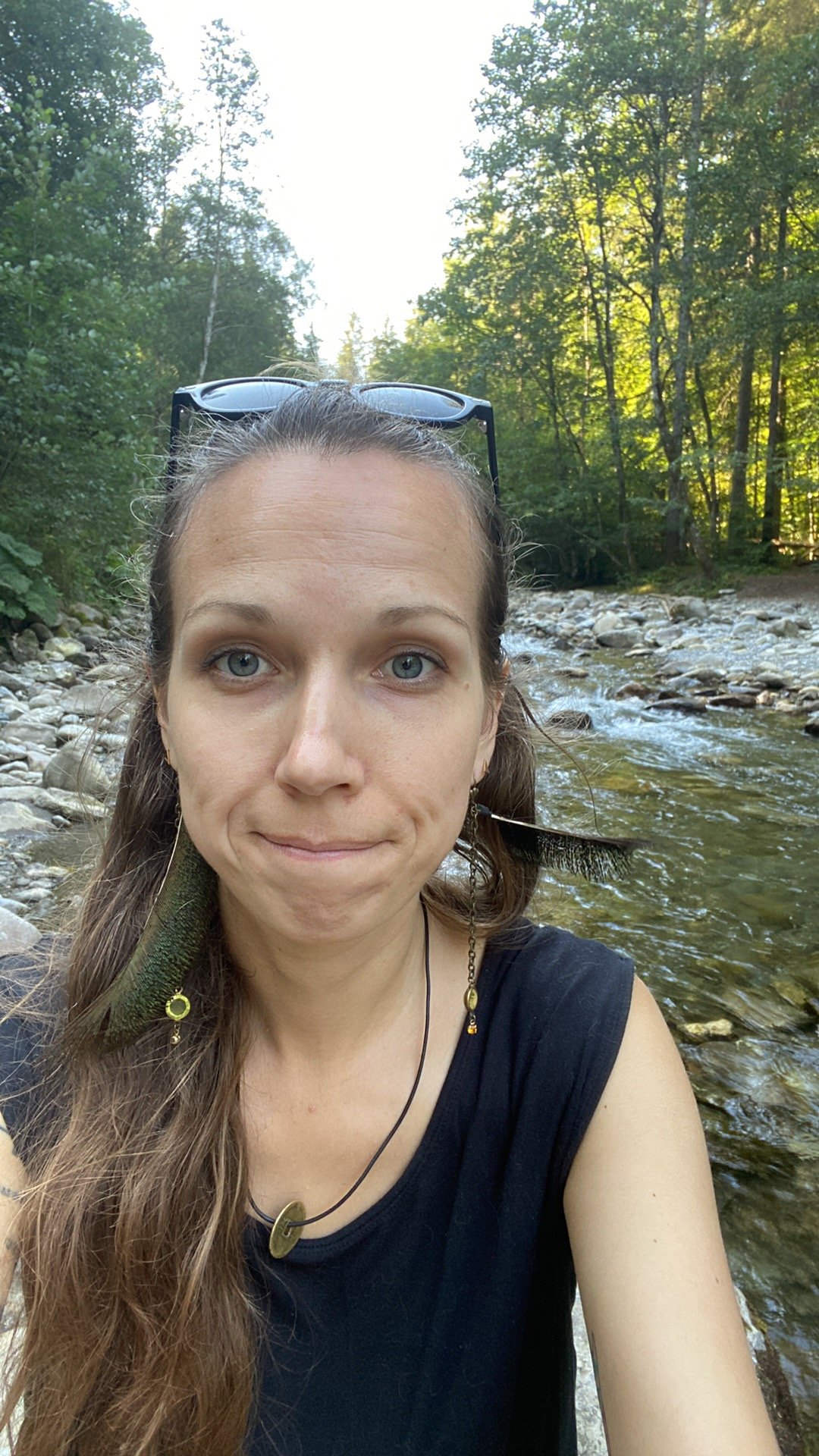Beginner’s Mind: How I Started Meditating and Never Stopped.
I began meditating in 2020, when the bar I owned in a small town in France was shut down. A meditation challenge was circulating on WhatsApp—Deepak Chopra’s 21-Day Abundance Challenge. I had absolutely nothing better to do, so I followed along.
It wasn’t long into the challenge that meditation changed my life completely.
Covid made me stop doing. It stopped me from being busy. I have the pandemic to thank for that. But it was meditation that made me really stop. Stop doing, stop thinking—à la limite, stop existing for a few minutes and feel what that’s like.
To me, it felt like rest. It felt like calm. Like organization without effort. Like clarity and wisdom.
Meditation helped me connect with myself. That connection led to self-awareness, and that awareness made me realize how much of what I was experiencing in life was happening more in my head than in reality. By grounding me in the present moment, meditation helped me see what was real and what wasn’t—what was fact, and what was judgment, perspective, or narrative layered over the fact.
This clarity anchored me in reality. And my life became a hell of a lot easier.
I found that meditating daily gave me a baseline of calm and clarity that affected everything. Nothing felt like a big deal—unless it really was, in which case, I just needed to take action. Life became simpler. More manageable.
This daily practice helped me run my bar, manage my staff, juggle the chaos of restaurant life, study for my online Master’s degree, and navigate the transition of selling my bar and becoming a therapist.
This is why meditation is foundational for me.
Yes, therapy can help us unravel our thought patterns and understand ourselves. But it’s meditation that regulates us. It’s what brings us back to ourselves and to reality—making life feel easier, smoother. Flowier, even. That’s really the word that comes to mind when I think of meditation: flowier.
Now, if the idea of meditating stresses you out, I get it. You probably have some ideas about what meditation “should” look like. But there’s no one way to meditate—there are actually many. Some meditations guide you through a visualized experience. Some ask you to focus on one thing. Some on no thing.
But there’s one myth I really want to debunk: meditation is not about stopping all your thoughts.
Well, okay—it is, sort of. But the truth is: you probably won’t. I meditate every day, and only sometimes, when I’ve been really consistent, do I arrive at a state of thoughtlessness. (And let me tell you—it’s a delightful place to be.) But most days? Thoughts are present. Even for the most seasoned practitioners, thoughts show up. So let’s take that pressure off ourselves. Meditation isn’t supposed to go a certain way. It’s not supposed to have a specific result.
Meditation is not goal-oriented. It is a practice.
Just like life—a concept that has slipped out of our hands and causes us so much suffering. Especially for people with ADD or ADHD, who arguably need meditation the most—and often struggle with it the most. I think this is because we judge the practice. We judge ourselves and our “performance” in it.
This has to stop.
Just stop the judgment. Trust the process.
The bonus of meditation (compared to many other practices) is that it’s now widely scientifically proven to improve mental health, concentration, awareness, memory, intuition, executive function… the list goes on. So, so long at this point. Stress and false beliefs are harming us—deeply—and meditation is one of the best ways I know to bring us back to truth and peace.
Here’s one of my favourite, simple guided meditations that I love recommending. The same creator has versions of this in 10-, 15-, 20-, 30-, 45-minute, and one-hour formats. This is the 15-minute version, and I recommend it because:
Why 15 minutes?
That can sound like forever if you’re new!
When I started meditating, I jumped straight into 20-minute sessions, on the advice of a friend. At the time, I had no idea why she chose that length. Now, I do.
I recommend at least 15–20 minutes, because for me, it takes about 15 minutes just for my mind to settle. This morning, I did this exact 15-minute practice—and just as I landed in that sublime quiet space, the narrator said, “Now open your eyes.”
If you don’t sit long enough, you might never taste the real reasons for meditating. And then you might not come back.
Yes—five minutes is better than nothing. Ten is better than five. But I worry that with shorter practices, we stay in that restless surface-level state and miss the deeper experience of true stillness. And that’s a shame, because once you touch it, you understand.
So I recommend you give it a real shot. Try 15 or 20 minutes. Let yourself arrive. Touch that peace, that clarity, that presence. Even five minutes of that at the end of a practice can be life-changing.
Give it a try. And if you have any questions—reach out. I love talking about meditation. I wrote my Master’s dissertation on it. I have a lot to say.
Happy practicing.
—Leslie





